Educational psychology can be an incredibly rewarding, and fascinating, career.
If you’re interested in child development, human behaviour, and the complex intricacies of how our brains work – as well as helping to improve the outcomes of young people – training to work as an educational psychologist (EdPsych or EP) could be the ideal path for you.
How do you pursue a career as an EdPsych? Are there different routes available? What sort of background or experience is required – and what are the career prospects?
What is the difference between an educational psychologist and a psychologist?
There are both similarities and differences between the roles of educational psychologists and psychologists. There is much crossover in the nature of their work, such as supporting social, emotional and learning difficulties, complex developmental disorders, and disabilities.
However, while clinical psychologists may work with all manner of age groups across the course of their career, educational psychologists work principally with children and young people, as well as their families, carers and others who support them.
Historically, the work of educational psychologists was generally confined to schools and early years settings, or roles within local authorities and the NHS such as the Child and Adolescent Mental Health Services (CAMHS). Now, they work across all manner of public and private settings – including in the business and corporate domain – and, conversely, many clinical psychologists work in educational settings.
What qualifications do you need to work as an educational psychologist?
According to the British Psychological Society (BPS), you will need the following qualifications to become a Chartered Member of the Society through the educational psychology training route:
- Graduate Basis for Chartered Membership (GBC), achieved by completing a society accredited degree or conversion course.
- A society accredited Doctorate in Educational Psychology (in the form of a three-year, postgraduate training programme, for England, Wales and Northern Ireland) or an accredited master’s course in Educational Psychology followed by the Qualification in Educational Psychology (Scotland) (Stage 2).
In order to use the title Educational Psychologist, registration is required with the Health and Care Professions Council (HCPC).
So, how do you go about this?
While helpful, having GCSEs or A levels in psychology are not required entry requirements for accredited BSc or BA university psychology degree programmes (a bachelor’s degree/first degree) – which is one of the eligibility criteria for progressing onto a doctorate training programme. For those whose first degrees are not in psychology, the options are to complete an approved conversion course or undertake a psychology-based master’s degree.
Following this qualification, you’ll need to pursue your doctorate postgraduate course. Over three years, you’ll combine theory with real-world professional practice; first years are generally university-based, with the two subsequent years spent primarily on practice-based placements to provide professional training. Common placement providers are local authorities or educational psychology services. As well as your previous academic qualifications, significant work experience – for example, working in healthcare, social care and social enterprises or childcare environments – is essential. Many applicants to doctorate programmes have worked as teaching assistants, social workers, residential care workers, mentors and coaches, and teachers.
Attending in-person and virtual open days of education providers you’re interested in is a great way to get a sense of whether it’s right for you. Plus, many places offer a bursary for the years in which you are training.
Can a teacher become an educational psychologist?
Previously, it was a requirement to have worked as a teacher before training as an EP, but this is no longer the case. Nevertheless, it’s still an incredibly common route into the profession and can provide the essential – and highly valuable – experience that is required.
Teachers who wish to move into educational psychology must pursue further education and training – depending on the qualifications they currently hold. For example, an individual who joined the profession via an undergraduate degree in education, a PGCE, or a school-based route must still take a conversion or master’s-level programme and then a doctorate.
While a master’s programme (or equivalent) is sufficient for a teacher to work as a mental health counsellor, it does not fulfil the criteria and level of expertise to become a registered educational psychologist.
What are the career prospects of an educational psychologist?
Demand for educational psychologists, particularly within the public sector, has outstripped supply. This is echoed by the Association of Educational Psychologists (AEP), who state that most newly qualified educational psychologist will land their ‘first qualified practitioner post immediately on completion of their training course’.
The educational provision for young people with special needs has recently changed by law – and now extends to those aged up to 25. This is likely to further increase demand for educational psychologists in a number of contexts and settings.
Many educational psychologist trainees receive a bursary during their three years of training. Once fully qualified, Prospects notes that salaries for EPs generally begin around £38,000 and rise incrementally to between £50,000-£58,000; for senior/principal educational psychologists range from £48,000-£65,000, increasing to around £72,000 with discretionary scale and structural professional assessment points. Self-employed educational psychologists and those who work in private practice can command higher salaries.
Those with skills and expertise and skills in educational psychology can also hold many other roles within the education sector and before.
Improve the educational, social and emotional outcomes of children and young people
Could a career in child psychology be right for you? Are you seeking professional development that would enhance and extend your knowledge and skills?
Learn how to apply psychological theory and techniques to support children and young people with North Wales Managements School’s online MSc Educational Psychology programme.
Enhance your professional practice in classroom and educational settings – and give yourself a valuable career advantage – on a flexible programme that fits around your current commitments. You’ll gain insights into the EP role and the fundamental principles that underpin psychology of education practice. Your comprehensive study of educational psychology will span child and adolescent development, behaviour disorders, resilience, additional learning needs, giftedness, forensic psychology, health psychology, psychological assessments, and more.




